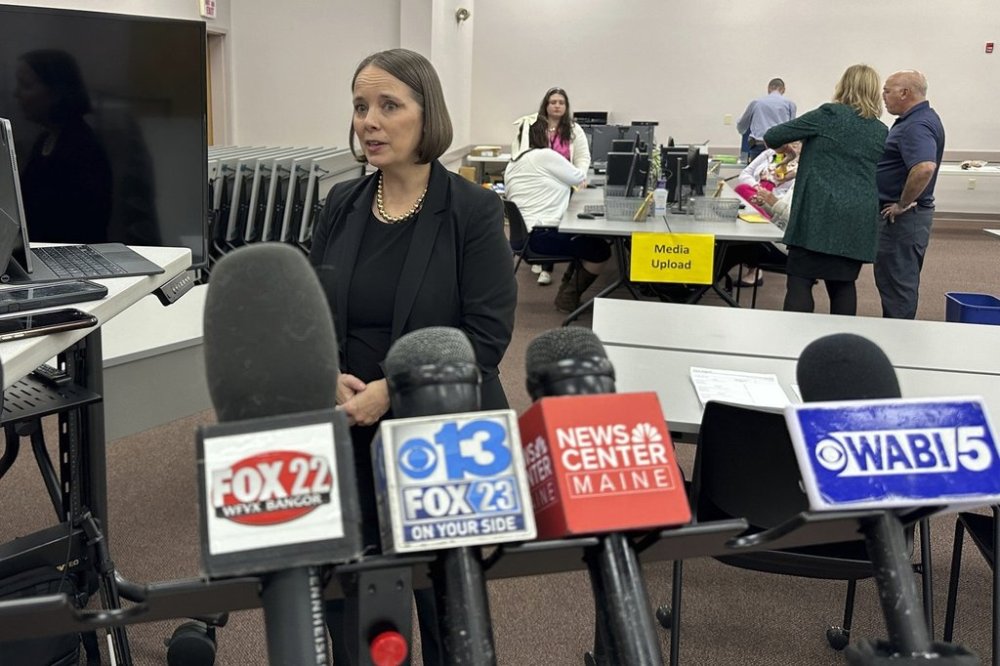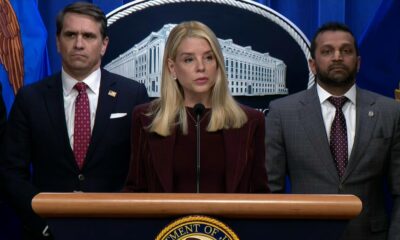World
U.S. Justice Department Expands Requests for Voter Data Nationwide

The U.S. Department of Justice is intensifying its efforts to obtain voter data and election information from at least 19 states across the country. According to an analysis by the Associated Press, this initiative has involved a series of requests dispatched through letters, emails, and phone calls, targeting state election officials.
Over the past three months, the Justice Department’s voting section has sought copies of voter registration lists from state election administrators in at least 15 states. Of these states, nine are governed by Democrats, five by Republicans, and one is overseen by a bipartisan commission. In a particularly notable request, the department demanded “all records” pertaining to the upcoming 2024 election from Colorado, as well as any records retained from the 2020 election.
The outreach has raised concerns among election officials, as it emphasizes the federal government’s growing role in state election processes. Traditionally, states hold the constitutional authority to manage elections, and federal law places strict limitations on the sharing of individual voter data with the government. This shift reflects a marked change in the Justice Department’s approach to election oversight under former President Donald Trump, who has repeatedly made unfounded claims regarding widespread voter fraud.
The department’s current actions coincide with a broader initiative by the administration to scrutinize past elections and influence the upcoming 2026 midterm elections. Trump has called for a special prosecutor to investigate the 2020 election results, which he continues to dispute despite losing to Joe Biden.
The Justice Department typically refrains from broad inquiries that could be considered “fishing expeditions” for potential violations of the law. David Becker, a former department lawyer and now the head of the nonprofit Center for Election Innovation and Research, noted that the current approach suggests a departure from the department’s historical independence.
In response to an array of questions from the Associated Press, the Justice Department provided an emailed “no comment.” However, election offices in states including Alaska, Arizona, California, and Florida confirmed receiving requests for their statewide voter registration lists. In total, at least twelve states acknowledged communication from the department requesting this information.
The requests vary in detail, with some focusing on basic questions regarding state compliance with federal voting laws. Specific inquiries include how states identify and remove duplicate registrations or deceased individuals from voter rolls. Additionally, certain requests reference data inconsistencies identified in a recent survey conducted by the U.S. Election Assistance Commission.
The Justice Department has already initiated legal action against North Carolina’s state election board for allegedly failing to comply with federal regulations concerning voter registration records. Furthermore, indications suggest that the department’s outreach is ongoing, with plans to contact all states eventually, as communicated to the National Association of Secretaries of State (NASS). Maria Benson, a spokeswoman for NASS, noted that the organization has requested a virtual meeting with the department to address queries regarding the letters sent to state officials.
Concerns surrounding the potential misuse and protection of voter data have surfaced. In California, election officials from several counties, including Los Angeles and San Francisco, reported receiving requests for voter roll records that include sensitive information such as ID numbers and voting records. Officials in states like Arizona, Michigan, and Wisconsin have also confirmed receiving emails from department lawyers proposing discussions about information-sharing agreements aimed at addressing instances of election fraud.
The requests, particularly for voter registration data, have garnered scrutiny due to the stringent guidelines established by the Privacy Act of 1974, which controls how the federal government collects personal data. Becker emphasized that while there is no legal obligation for states to fulfill requests for sensitive personal information, the involvement of criminal attorneys in the outreach could be perceived as intimidating.
Some states have responded to the department’s inquiries by providing public versions of their voter registration lists, while withholding specific personal details such as Social Security numbers. In contrast, Minnesota Secretary of State Steve Simon indicated that the federal agency lacks the legal authority to access this information, citing the sensitive nature of the data involved. In a letter dated July 25, Simon’s general counsel articulated that the office is bound by federal and state laws to protect voter privacy.
Meanwhile, Maine Secretary of State Shenna Bellows, a Democrat, has expressed that the administration’s requests overstep federal authority, asserting that the department does not have an inherent right to access comprehensive personal data without clear legal justification.
The current situation illustrates a significant shift in the Justice Department’s approach to election oversight, raising vital questions about the balance of power between federal and state authorities regarding the management and protection of voter information.
-

 Politics4 weeks ago
Politics4 weeks agoSecwepemc First Nation Seeks Aboriginal Title Over Kamloops Area
-

 World5 months ago
World5 months agoScientists Unearth Ancient Antarctic Ice to Unlock Climate Secrets
-

 Entertainment5 months ago
Entertainment5 months agoTrump and McCormick to Announce $70 Billion Energy Investments
-

 Science5 months ago
Science5 months agoFour Astronauts Return to Earth After International Space Station Mission
-

 Lifestyle5 months ago
Lifestyle5 months agoTransLink Launches Food Truck Program to Boost Revenue in Vancouver
-

 Technology3 months ago
Technology3 months agoApple Notes Enhances Functionality with Markdown Support in macOS 26
-

 Lifestyle3 months ago
Lifestyle3 months agoManitoba’s Burger Champion Shines Again Amid Dining Innovations
-

 Top Stories2 months ago
Top Stories2 months agoUrgent Update: Fatal Crash on Highway 99 Claims Life of Pitt Meadows Man
-

 Politics4 months ago
Politics4 months agoUkrainian Tennis Star Elina Svitolina Faces Death Threats Online
-

 Sports5 months ago
Sports5 months agoSearch Underway for Missing Hunter Amid Hokkaido Bear Emergency
-

 Politics5 months ago
Politics5 months agoCarney Engages First Nations Leaders at Development Law Summit
-

 Technology5 months ago
Technology5 months agoFrosthaven Launches Early Access on July 31, 2025





















